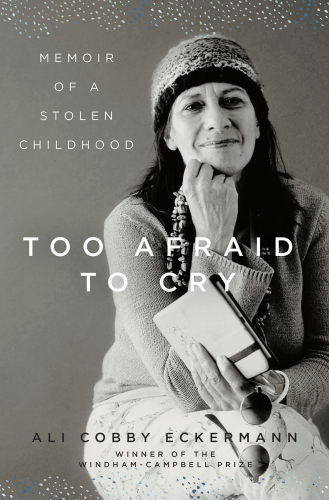
Too Afraid to Cry
Memoir of a Stolen Childhood
کتاب های مرتبط
- اطلاعات
- نقد و بررسی
- دیدگاه کاربران
نقد و بررسی

December 1, 2017
A celebrated Australian poet of aboriginal ancestry searches for her birth parents and for meaning in the face of adversity.Simple prose belies a heavy heart in this straightforward but subtly heartbreaking chronicle of trauma and tragedy by poet Eckermann (Ruby Moonlight, 2015, etc.), a winner of the Windham-Campbell Prize. Punctuated by equally spare, muted poems, her stories offer happiness only in flashes, couched within moments of pain and grief. The litany of horrors began with a molestation by a family friend as a child. "He had put his body on mine, and I couldn't move," she writes. "And the icy wind was screeching around and around inside my whole body. Ice cold tears forced their way out of my eyes down my cheeks." In adolescence, the author turned to alcohol and drugs, a time she portrays in an extended sequence that shows terrible alienation from her adoptive parents, her friends, and a white culture that ostracized her. Eventually, Eckermann ran away with an abusive boyfriend who "punched me in the face every payday." The author had a baby and gave him up for adoption, then lived a vagabond life, taking odd jobs to make ends meet. She shattered her legs in a motorcycle crash, experienced a lousy first marriage, a miscarriage, and suicidal thoughts. After a stint in rehab, she decided to find her birth mother again as well as her grown son. When she did, she was quickly adopted by her extended family, and the memoir finally takes a welcome, poignant turn away from horror. "I learn that I can't fully live their traditional lifestyle, and that they can't live mine," she writes. "So we compromise. My family teach me bush way, and I teach them the whitefella ways. We grow smarter and stronger as one. Together we are family."A subdued memoir about shouldering pain, owning decisions, and finding a voice.
COPYRIGHT(2017) Kirkus Reviews, ALL RIGHTS RESERVED.

February 15, 2018
Yankunytjatjara poet and member of the Stolen Generationsaboriginal babies forcibly taken from their families and adopted outEckermann presents a memoir in prose and poetry. Despite being raised by loving German Lutheran farmers, Eckermann was sexually abused at a young age by an uncle. Internalizing her trauma, she encountered further hurt. Burdened by unexpressed rage, Eckermann slid into a world of rebellion, poor grades, and questionable friends. After getting pregnant and giving up her own child at 18, she embarked on a search for healing, a journey marked by drug abuse, rotten relationships, depression, and grief. Eventually, she connected with members of her aboriginal family, and they remove the ice block from inside. Eckermann's strength lies in her poetry, which illuminates themes of guilt, forgiveness, and the blurred lines of who and what defines home. Although her devastation and pain are revealing, a broader focus on the racism that birthed the Stolen Generations would have increased this narrative's depth and dimension. Eckermann's story is, however, extremely relevant in light of current polarizing debates on immigration and belonging.(Reprinted with permission of Booklist, copyright 2018, American Library Association.)

























دیدگاه کاربران